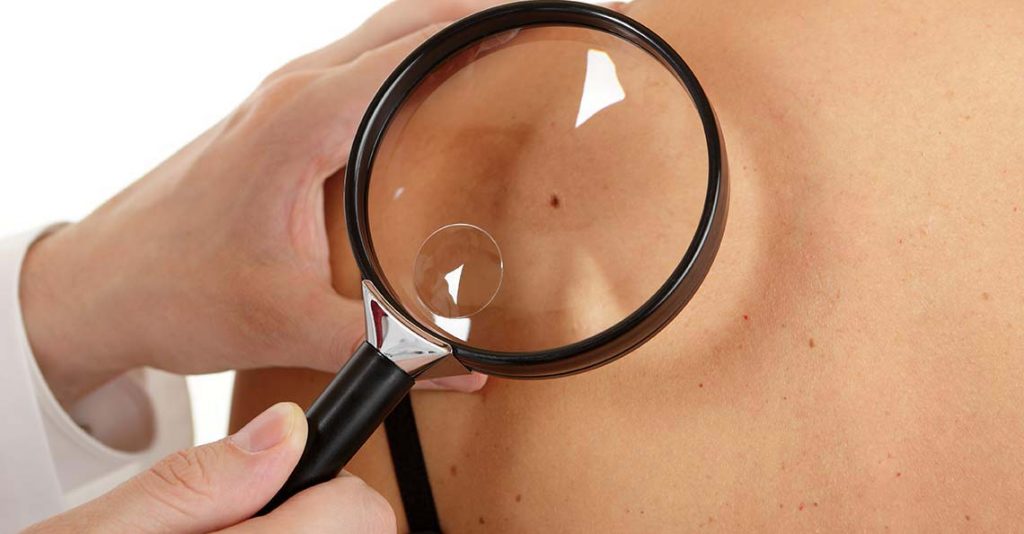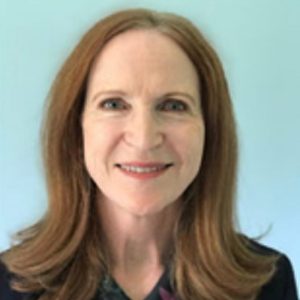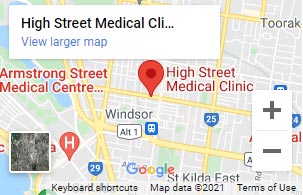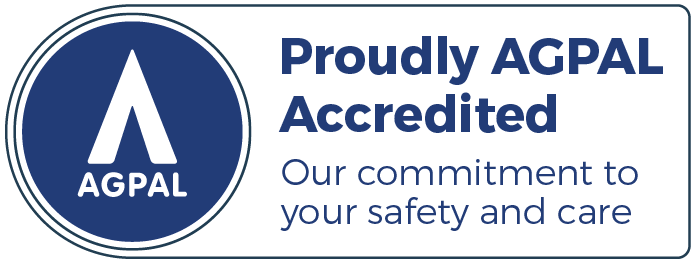Early Detection of Skin Cancer Saves Lives

Importance of Skin Checks
Every year, thousands of Australians are diagnosed with skin cancer. Early detection through regular skin checks can lead to a better prognosis and simpler treatments. Did you know that two-thirds of Australians will be diagnosed with some form of skin cancer by the age of 70? Regular skin checks are vital for early identification and peace of mind. Remember: Early detection and treatment saves lives.
Skin Check Services
At High Street Medical Clinic, we offer skin check services tailored to your needs. We use the latest technology to monitor changes in the appearance of moles, skin spots and blemishes, and can treat skin cancers and perform excisions.
Whether you only have a few spots that you are concerned about, or you want to routinely plan a full-body skin check, we are here to help. Our services include:
- Total Body Mole Mapping Photography with Full Body Skin Cancer Check: A thorough assessment from head to toe with total body mole mapping.
- Full Body Skin Cancer Check: Full body skin cancer check (head to toe examination) with limited mole mapping and macrophotography.
- Mole Check: Focused examination of specific areas of concern (up to 3 spots).
- Skin Cancer Treatment: Treatment of most skin cancers and referrals to specialists if the skin cancer is more advanced.
- Skin Cancer Education: Learn about skin health and how to protect yourself.
What to Expect
When visiting us for a skin check, here is an overview of what to expect, tailored to the service you have booked:
- Consultation: Discuss your skin health history and concerns
- Examination: A careful and thorough check of your skin
- Discussion: We’ll talk through any findings and the next steps.
- Follow-Up: Recommendations for future checks and skin care advice.
Skin Cancer Doctors
FAQs
Typically, once a year is recommended, but it may vary based on personal risk factors, including frequency of sun exposure in daily activities. You should always get a skin check if you notice changes to the appearance of existing moles, or have moles or spots that you are concerned about.
Any new spots or changes in existing moles should prompt a visit to your doctor.
Skin checks are non-invasive and typically pain-free.
Every year, in Australia skin cancers account for approximately 80% of all newly diagnosed cancers, and over 1000 people die of melanoma. We have one of the highest incidences of skin cancer in the world and that is why it is important we should look after our skin and proactively look to catch skin cancers early.
What you see yourself might not always give you the full picture. Quite often we see patients who attend for review of a concerning spot that turns out to be harmless, and incidentally, we find other skin spots that require further attention.
It is important to remember that you will always benefit from a skin check, no matter what skin type you have or what background you come from. If you answer YES to any of the below questions, we recommend a full body skin check or mole mapping to help you have piece of mind about your skin:
I have:
- moles or spots that I am concerned or not sure about?
- over 100 moles?
- previous history of skin cancer?
- used a solarium in the past?
- fair skin, and skin that burns easily?
- a family history of melanoma or other skin cancers?
- I am over the age of 40?
We also recommend skin checks if one of your existing moles changes colour, size, shape or has started to itch or bleed.
Mole-mapping and full-body skin cancer checks are essential to reduce your risk of skin cancer.
In Australia, we have one of the highest skin cancer rates in the world: More than 60% of Australians will get skin cancer before they turn 70 and over 2,000 Australians are dying of skin cancer each year. It is important to establish good habits of performing routine skin checks and mole checks.
We have been helping thousands of patients in Melbourne with effective skin checks and treatments, so If you have not booked a skin check in a while, come, and see us at our practice in Prahran.









